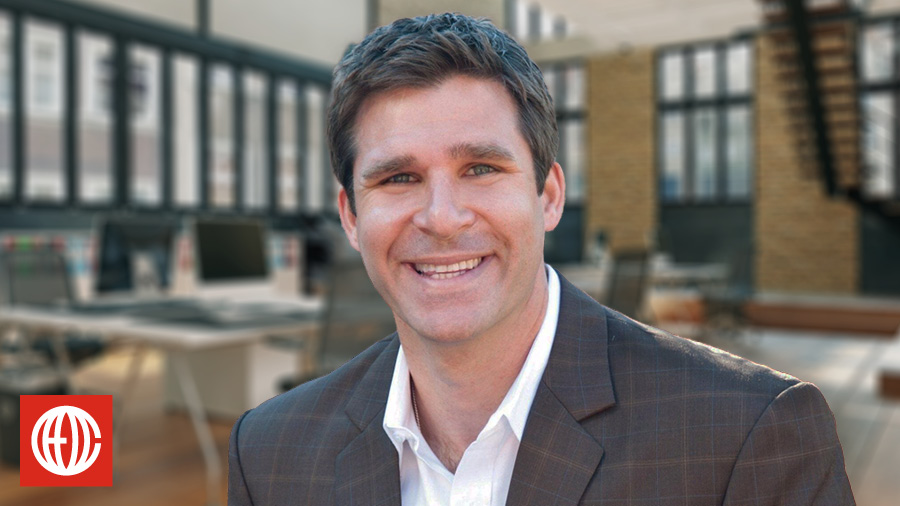
The 5 Reasons Why Every CEO Needs a Trusted Confidant, Coach, and Accountability Partner
Feeling lonely at the top?
Then it’s time to do something about it.
Yes, ultimately, the decisions that will make or break your company’s success fall to the CEO alone. But you don’t have to bear that burden by yourself. If you don’t have someone you can rely on to help you weigh pros and cons, confront blind spots, and maintain accountability, then you have an empty seat in your org chart that you need to fill.
And if that confidant doesn’t work for your company, even better. A mentor or a professional CEO coach has no agenda other than to help you execute your responsibilities at a high level and continue growing as a leader.
Consider five common challenges that most CEOs have faced at some point in their careers. Are you better off locking yourself in your office and banging your head against the wall? Or should you open your door and let in a confidant who can help you maintain focus, control your stress, and Make BIG Happen?
1. Gain Objective Perspective on Critical Decisions
Challenge: CEOs often face complex decisions where internal bias or external pressure can cloud judgment.
Solution: A sounding board provides an objective perspective, helping to weigh options without the influence of company politics or personal stakes.
Case Study: Many companies spent the pandemic battening down the hatches and trying to weather the storm. NewDay USA, a home mortgage lender serving military veterans, took a different approach. Faced with a generational challenge, CEO Rob Posner decided to double down on his annual commitment to set Huge, Outrageous Targets — and hit them.
His CEO coach, Sheldon Harris, helped Rob and his executive team maintain the Make BIG Happen Rhythms, including biweekly accountability sessions and transparent top-down communication to every level of the organization. Sheldon also pushed Rob to question assumptions about target market and tech capabilities that were baked into their HOT revenue goals for the year, and acted as a sounding board as the company adjusted to the facts on the ground while maintaining forward progress. With Sheldon’s help, NewDay exceeded its annual goals by October and more than doubled its revenue to $300 million.
2. Have Emotional Support and an Outlet for Stress
Challenge: The emotional toll of leadership can be overwhelming, leading to burnout or poor decision-making.
Solution: A confidant offers a safe space to express fears, frustrations, and doubts, helping to manage stress and maintain emotional resilience.
Case Study: Before he was 25, fintech entrepreneur Victor Santos founded Airfox with a vision to bring digital banking tools to emerging markets, including Brazil. Working with his coach and adopting the Make BIG Happen system helped the young CEO and his team zero in on objectives and key results while also giving Victor insights into his own strengths and weaknesses as a leader.
Victor credits his CEO coach with helping him to manage his stress and lead the company to a BIG exit. “Some days my coach was a sounding board, sometimes a therapist, sometimes a doctor diagnosing what’s wrong,” Victor says. “He has been the person where I could vomit everything that was on my mind, get out of my own way by seeing if I had a bias to break through. He coached other members of my team too, was able to see both perspectives, keep the confidentiality, and always do what is rationally the best thing for the company.”
3. Have an Accountability Partner for Personal and Professional Growth
Challenge: Without accountability, it’s easy for CEOs to become complacent or stray from their goals.
Solution: An accountability partner ensures you stay on track with your personal and professional development, pushing you to achieve your full potential.
Case Study: Dr. Madan Kandula, the founder and CEO of ADVENT, knew that his healthcare company was growing beyond its internal capabilities. He needed private equity in order to scale sustainably along with his greater medical mission, but he also had to scale himself so that he could grow into the CEO role.
“I’m at my best when I have somebody who’s just telling it like it is,” says Dr. Kandula. “Whatever space you’re in, without a coach you might be able to shuffle your feet forward, but you’ll never unleash the potential that you could have. No CEO is going to be as capable as they could be without a coach. Randy Koch, who’s my coach at CEO Coaching International, has been a phenomenal asset, not just to me, but my team as well. CEO Coaching International has been a great benefit to me by finding somebody who’s got the right mindset and skillset to make me better and make my organization better.”
4. Create a Safe Space for Vulnerability and Honest Reflection
Challenge: Leaders often feel they must appear infallible, making it difficult to admit mistakes or uncertainties to their teams.
Solution: Confidants allow for honest reflection, fostering vulnerability that leads to stronger self-awareness and leadership growth.
Case Study: CEO Coaching International’s Frank de Jong learned the power of leaning on others in the most devastating way imaginable. In March 2006, Frank’s wife died after a long battle with melanoma. He had recently moved his family to Singapore, where he was raising two children and leading a division with 900 employees and a $400 million P&L.
“The first thing that was clear to me was how do you surround yourself with great people?” Frank says. “I had people by my side and then they stuck with me and they did a lot. Friends that really knew you and knew how to engage you and knew when to just simply listen and when to support in a more direct way. I learned it’s okay to ask for help, even to ask for professional help. We all need support at times in our lives.”
Today, the perspective Frank gained on the value of providing and accepting support is central to how he coaches other CEOs who are struggling personally or professionally. “If you’re an executive running a business, have confidence that you can manage through it,” Frank says. “I learned that in business you can surround yourself with great people, find yourself, gain trust through strong relationships, allow that little hint of vulnerability, and you can drive a business forward. And you can deal with things and you’ll have that confidence and that resiliency to know that you can get there.”
5. Zoom Out for Enhanced Strategic Thinking and Innovation
Challenge: CEOs are often so entrenched in daily operations that they struggle to think strategically or innovate effectively.
Solution: A coach helps to step back and look at the bigger picture, encouraging strategic thinking and creative problem-solving.
Case Study: In 2015, consumer tech company Sound United had plateaued at $152 million with EBITDA of about $13 million. The company had been underperforming for two years. CEO Kevin Duffy needed to step back from the business and see a path to BIG.
CEO Coaching International held a two-day strategic planning session with the Sound United leadership where they completed our Three Provocative Questions exercise. With guidance from our coaching team, Sound United imagined it was starting a brand-new company that would compete with the current firm. Then they asked themselves:
- What are we doing now that we would stop doing in our new company?
- What are we not doing now that we would start doing in our new company?
- How would we compete to try to put our old company out of business?
Sound United used its answers to completely reimagine its business. In 2020, Sound United revenues soared to $798 million with EBITDA of $113 million. And in 2022, Sound United was acquired by Masimo Corporation for $1.025 billion.
In our experience, pride is often the only thing standing between a CEO and a coaching relationship that could transform their life and business. Remember this–reaching out isn’t a sign of weakness, it’s a demonstration of humility and personal accountability — something all leaders can use a little more of.
And we can all use another ally in our corner as well. Find someone who will support you, challenge you, and be honest with you — no matter what — and Making BIG Happen will be a lot less lonely, and a lot more successful.
About CEO Coaching International
CEO Coaching International works with CEOs and their leadership teams to achieve extraordinary results quarter after quarter, year after year. Known globally for its success in coaching growth-focused entrepreneurs to meaningful exits, CEO Coaching International has coached more than 1,000 CEOs and entrepreneurs in more than 60 countries and 45 industries. The coaches at CEO Coaching International are former CEOs, presidents, or executives who have made BIG happen. The firm’s coaches have led double-digit sales and profit growth in businesses ranging in size from startups to over $10 billion, and many are founders that have led their companies through successful eight, nine, and ten-figure exits. Companies working with CEO Coaching International for two years or more have experienced an average EBITDA CAGR of 53.5% during their time as a client, more than three times the U.S. average, and a revenue CAGR of 26.2%, nearly twice the U.S. average.
Learn more about executive coaching | Meet our world-class coaches





